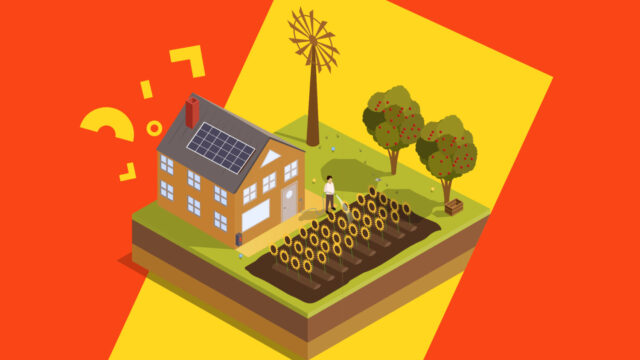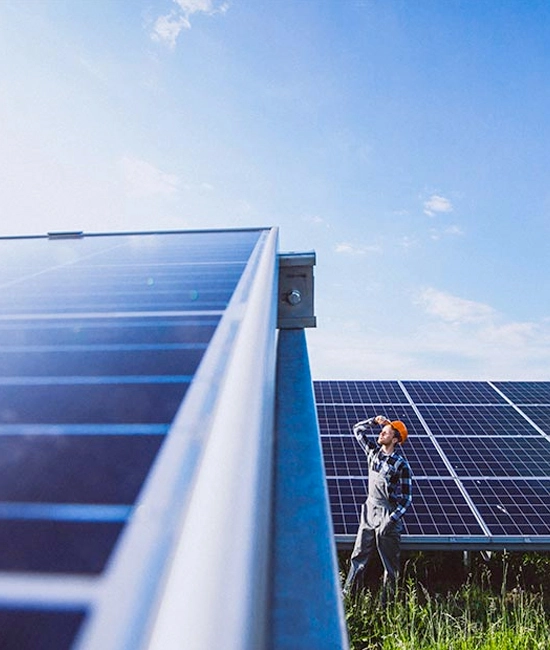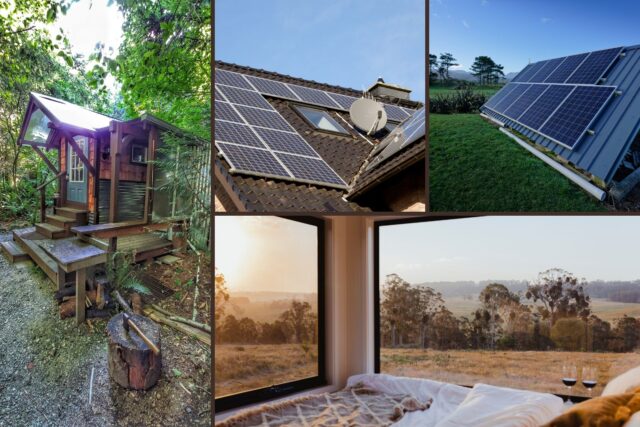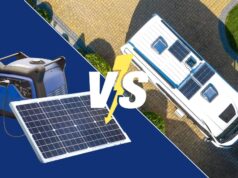
As energy prices rise and environmental concerns grow, an increasing number of homeowners are turning to off-grid living as a sustainable and cost-effective solution. This kind of living involves generating your own energy, sourcing your water, and managing waste independently, providing numerous benefits such as reduced costs, environmental sustainability, and a greater appreciation for resource consumption.
In this article, we will delve into the reasons why homeowners should consider transitioning to this lifestyle and the essential factors to consider when doing so.
We will explore 7 advantages of implementing an off-grid solar panel system as a reliable and efficient source of renewable energy.
7. Financial Benefits

One of the primary reasons homeowners choose to go off-grid is the potential for long-term financial savings.
While the initial investment in solar panels, battery systems, and other necessary equipment can be significant, the savings over time can be substantial. By generating your own electricity, you can eliminate or significantly reduce monthly utility bills.
The cost of solar panels has decreased over the years, making them a more accessible option for many homeowners.The cost of maintenance for these systems is relatively low compared to traditional utility expenses.
Beyond just saving on bills, going off-grid can also add value to your property. Eco-conscious buyers are increasingly looking for homes with minimal carbon footprints and self-sufficient energy systems. While some may be hesitant about the challenges of this living, many see the long-term benefits and are willing to pay a premium for such properties.
6. Environmental Impact

Reducing your environmental impact is another compelling reason to consider going off-grid. Traditional energy sources, such as coal and natural gas, contribute significantly to carbon emissions and environmental degradation.
By switching to renewable energy sources like solar or wind, you can greatly reduce your carbon footprint. Off-grid living also encourages more sustainable practices, such as water conservation and waste management, further reducing your environmental impact.
Generating your own power means less reliance on the often outdated and inefficient public utility infrastructure. This independence not only benefits the environment but also ensures a more reliable and resilient energy supply for your home, particularly in areas prone to power outages.
5. Self-Sufficiency and Independence
Living off the grid fosters a sense of self-sufficiency and independence that many find deeply satisfying. Managing your own energy and water supply means you are less dependent on external systems and can avoid the disruptions caused by grid failures or utility issues. This independence can be particularly valuable in remote or rural areas where utility services may be less reliable or more expensive.
The process of setting up and maintaining an off-grid system provides valuable knowledge and skills. Understanding how your energy and water systems work can lead to a greater appreciation of these resources and inspire more conscious consumption.
This hands-on experience can also be empowering, as it enables you to take control of your home’s essential systems and reduces reliance on external providers.
4. Challenges and Adjustments
While the benefits of going off-grid are substantial, it is important to acknowledge the challenges and adjustments that come with this lifestyle. One of the main challenges is the initial setup cost and the technical knowledge required to install and maintain off-grid systems. Homeowners must be prepared to invest time and resources into learning about renewable energy technologies and best practices for water and waste management.
Another adjustment is the need to be more conscious of resource consumption. Living off the grid requires careful monitoring and management of energy and water usage. This can mean making lifestyle changes, such as reducing electricity use during cloudy days or conserving water during dry periods.
While these changes may seem daunting at first, they often lead to a greater appreciation for resources and more sustainable living habits.
3. Practical Considerations

When considering going off-grid, it is essential to evaluate the resources available on your property and the legal regulations in your area. Solar energy is a popular choice due to its versatility and decreasing costs, but other options like wind, hydro, and biomass energy may also be viable depending on your location. It is crucial to assess the availability of these resources and choose the most appropriate energy system for your needs.
Homeowners must be aware of local laws and regulations regarding off-grid living. Some areas have specific requirements for connecting to the grid or using certain types of energy systems. It is important to research these regulations and ensure compliance to avoid potential legal issues.
2. Maintenance and Reliability
Maintenance is a critical aspect of off-grid living. While renewable energy systems generally require less maintenance than traditional utilities, they are not entirely maintenance-free. Regular checks and upkeep of solar panels, battery systems, and water management systems are necessary to ensure their efficiency and longevity. Homeowners should be prepared to handle minor repairs and maintenance tasks or have access to professional services for more complex issues.
Having a backup plan is also essential for off-grid living. Even the most well-designed systems can experience failures or require downtime for maintenance. Backup generators or alternative energy sources can provide peace of mind and ensure a continuous supply of power and water.
1. Community and Support
Joining an off-grid community or network can provide valuable support and resources for those new to this lifestyle. These communities often share knowledge, experiences, and practical advice on managing these systems and overcoming common challenges.
Connecting with others who have successfully transitioned to that living can encourage and help you navigate the initial learning curve.
Being part of a community can enhance the social aspect of off-grid living. Many communities are based on principles of sustainability and cooperation, fostering a sense of camaraderie and shared purpose. This support network can be invaluable, especially during the early stages of your off-grid journey.
Conclusion

Going off-grid offers numerous benefits, from financial savings and environmental impact to increased self-sufficiency and independence.
While the transition requires careful planning, investment, and a willingness to adapt, the rewards can be significant.
By generating your energy and managing your resources, you can enjoy a more sustainable and resilient lifestyle.









